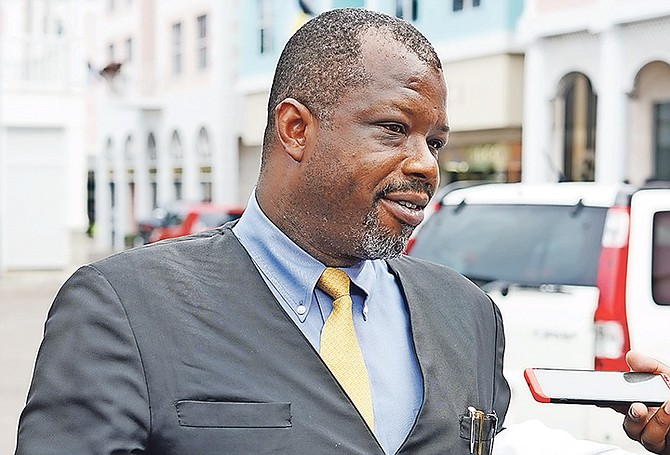By NEIL HARTNELL
Tribune Business Editor
nhartnell@tribunemedia.net
A QC representing 24 former Gaming Board staff yesterday said he "doesn't understand" why it has failed to settle the dispute over their termination as the potential taxpayer liabilities are rising daily.
Wayne Munroe, speaking after attorneys for the Government regulator withdrew their bid to overturn a previous Supreme Court decision, told Tribune Business he hoped it would move to resolve the matter rather than go through another appeal.
"They're making the case it wasn't a redundancy exercise because there was a surplus of labour," he said. "There was only a surplus of labour accumulating at the Gaming Board because there was automation of their processes, which is a classic case of redundancy.
"I don't understand their argument. Hopefully they may come to settle it. I don't understand why they don't settle. Every day the amount to reinstate climbs. This is December, nine months down the road (from Justice Indra Charles ruling on February 17, 2020). If they don't get reinstated until March next year that's 12 months more."
However, John Wilson QC, senior partner at McKinney, Bancroft & Hughes, who is representing the Gaming Board, told Tribune Business that the appeal was "withdrawn to be refiled" after the Court of Appeal learned that both parties had yet to appear before Justice Charles to deal with the issues of legal costs and damages to Mr Munroe's clients.
"The Appeal court decided that they wanted us to complete both the assessment of damages and costs stages prior to advancing the appeal," he explained. "We appealed the liability finding and stayed the assessment and costs below, but the appellate court wants us to compete all to avoid any further appeals on quantum or costs and deal with it all one time."
Mr Wilson and the Gaming Board, in their appeal, argued that Justice Charles' ruling makes a key part of the Employment Act irrelevant as it sought to overturn the reinstatement verdict in favour of 24 dismissed line workers and managerial staff.
Their May 7, 2020, “notice of appeal” alleged that her “very broad construction of” the Employment Act’s redundancy provisions means the same law’s section 29 - which deals with termination with notice - serves no purpose as such dismissals can also be deemed “termination for redundancy”.
It thus challenged the very foundation of Justice Charles’ ruling, which is that the Gaming Board made all 24 staff redundant and failed to follow the proper procedures set out in the Employment Act for accomplishing this.
Mr Wilson alleged the Supreme Court was wrong to accept the arguments of Mr Munroe “that redundancy occurs where the employer terminates employees due to a surplus of labour or introduces technological advances that allow for labour-saving machinery to be implemented”.
Arguing that the judge used the wrong legal precedent in applying “the test of surplus labour” to Bahamian redundancy law, the Gaming Board’s appeal also claimed that Justice Charles was wrong to combine the managerial and labour staff in finding that all lost their jobs “because work of a particular kind, that being administrative work, diminished”.
The regulator argued there was no evidence before the Supreme Court to show that “particular work”, as required by the Employment Act’s redundancy provisions, had reduced. It claims that “administrative work” is too broad a definition to meet the Act’s requirements.
Justice Charles, in her ruling, slammed the Gaming Board’s failure to follow “clearly set out” employment law procedures when it dismissed the 24 staff as “mind boggling”.
She suggested that the casino and web shop regulator had failed to adhere to modern industrial relations practices requiring employers to be candid and forthright with staff as it never showed how those workers were “chosen to be made redundant”.
The judge ruled that the Gaming Board had failed to comply with both the Bahamas Public Services Union (BPSU) industrial agreement, which governed the impacted line staff, plus the 2017 reforms to the Employment Act that mandated “consultation must take place” with the affected workers and their representatives when more than 20 are being terminated.
Justice Charles also found that the Gaming Board had pressed ahead with the redundancies despite its chairman, Kenyatta Gibson, being told of the need to adhere to these procedures by BPSU and worker representatives.





Comments
Use the comment form below to begin a discussion about this content.
Sign in to comment
OpenID